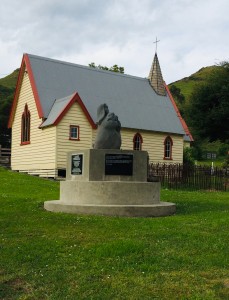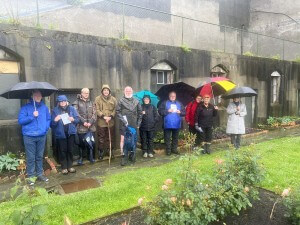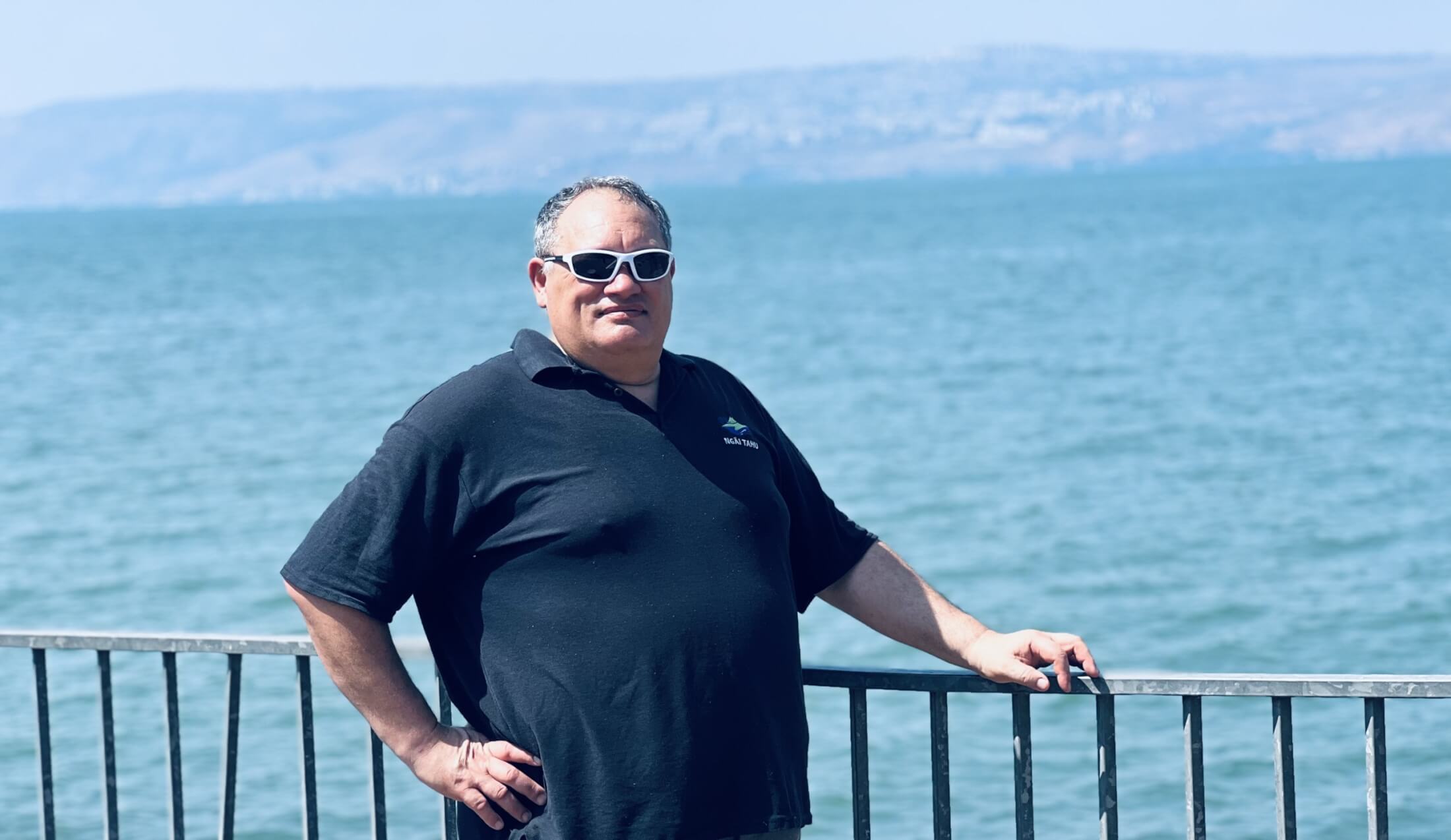Nestled in Whakaraupō (Lyttelton Harbour), Rapaki Church, led by Rev. Maui Stuart (Te hapū o Ngāti Wheke o Ngāi Tahu), is gearing up for a meaningful journey of remembrance to honour those imprisoned in Christchurch following the 1881 invasion of Parihaka.
For the past few years, Rev. Maui has collaborated with Ngā Manu Kōrihi o Te Tahi Parihaka Network Christchurch, an interfaith group dedicated to commemorating the peaceful resistance of Parihaka and connecting it to local communities.

A monument to the Parihaka prisoners at Rapaki Church
Rev. Maui shared, “Our wāhine of Ngāti Wheke, understanding the hardship faced by the Parihaka prisoners, showed their compassion by sending kai to Ripapa Island. When we learned that some had died and were buried on Ōtamahua, our people felt a deep duty to bring their remains to the church. With reverence, we brought the bones back to the urupā near Rapaki Church, so we could honour them with manaaki and dignity.”
Each year, Ngā Manu Kōrihi o Te Tahi Parihaka Network Christchurch decide how to mark this local history.
One powerful event held last year was a five-mile hīkoi, or pilgrimage, that retraced the path of the Parihaka prisoners who were held in Lyttelton’s prison—now known as The Rose Garden. Along the route, participants paused to reflect on gospel teachings and share their feelings. Despite the rain, around 50 people participated, honouring the past with resilience and community spirit.

Last year’s pilgrims at The Rose Garden (Lyttelton prison)
This year’s commemoration is set to be even more profound. Two boat trips are planned to Ripapa Island. With the first trip selling out in just a matter of days, the organisers added a second, and now 60 people will make the pilgrimage to Fort Jervois. The island, historically significant to Ngāi Tahu and now managed by the Department of Conservation, served as a prison and a fort built by Parihaka prisoners.
The journey will include a mihi whakatau, a whakawatea, a time of reflection on the island’s history, and a service at Rapaki Church, one of the oldest wooden churches in the region, standing since 1869.
Rev. Maui’s commitment to peace and reconciliation shines through his efforts, which resonate with many seeking to learn more about Aotearoa’s local history and the trauma endured by Māori communities.
Rev. Maui emphasises Te Whiti’s teachings on peaceful resistance: “Go, put your hands to the plough, look not back… If they smite you, smite not in return. Another will take up the good work.”
